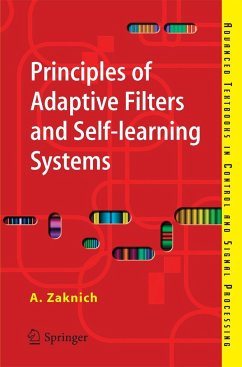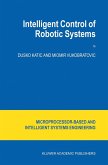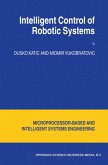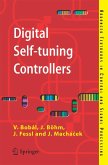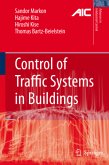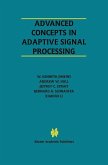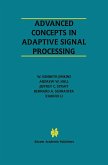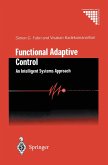This is an ideal textbook for one-semester introductory graduate or senior undergraduate courses in adaptive and self-learning systems for signal processing. The material progresses from a short introduction to adaptive systems through modelling, classical filters and spectral analysis to adaptive control theory, nonclassical adaptive systems and applications.
Features:
- Comprehensive review of linear and stochastic theory.
- Design guide for practical application of the least squares estimation method and Kalman filters.
- Study of classical adaptive systems together with neural networks, genetic algorithms and fuzzy logic systems and their combination deals with complex problems like underwater acoustic signal processing.
- Tutorial problems and exercises which identify significant points and demonstrate the practical relevance of the theory.
- PDF Solutions Manual available to tutors containing answers to the tutorial problems, course outlines, sample examination material and project assignments.
The topics of control engineering and signal processing continue to flourish and develop. In common with general scientific investigation, new ideas, concepts and interpretations emerge quite spontaneously and these are then discussed, used, discarded or subsumed into the prevailing subject paradigm. Sometimes these innovative concepts coalesce into a new sub-discipline within the broad subject tapestry of control and signal processing. This preliminary battle between old and new usually takes place at conferences, through the Internet and in the journals of the discipline. After a little more maturity has been acquired by the new concepts then archival publication as a scientific or engineering monograph may occur. A new concept in control and signal processing is known to have arrived when sufficient material has evolved for the topic to be taught as a specialised tutorial workshop or as a course to undergraduate, graduate or industrial engineers. Advanced Textbooks in Control and Signal Processing are designed as a vehicle for the systematic presentation of course material for both popular and innovative topics in the discipline. It is hoped that prospective authors will welcome the opportunity to publish a structured and systematic presentation of some of the newer emerging control and signal processing technologies in the textbook series.
Features:
- Comprehensive review of linear and stochastic theory.
- Design guide for practical application of the least squares estimation method and Kalman filters.
- Study of classical adaptive systems together with neural networks, genetic algorithms and fuzzy logic systems and their combination deals with complex problems like underwater acoustic signal processing.
- Tutorial problems and exercises which identify significant points and demonstrate the practical relevance of the theory.
- PDF Solutions Manual available to tutors containing answers to the tutorial problems, course outlines, sample examination material and project assignments.
The topics of control engineering and signal processing continue to flourish and develop. In common with general scientific investigation, new ideas, concepts and interpretations emerge quite spontaneously and these are then discussed, used, discarded or subsumed into the prevailing subject paradigm. Sometimes these innovative concepts coalesce into a new sub-discipline within the broad subject tapestry of control and signal processing. This preliminary battle between old and new usually takes place at conferences, through the Internet and in the journals of the discipline. After a little more maturity has been acquired by the new concepts then archival publication as a scientific or engineering monograph may occur. A new concept in control and signal processing is known to have arrived when sufficient material has evolved for the topic to be taught as a specialised tutorial workshop or as a course to undergraduate, graduate or industrial engineers. Advanced Textbooks in Control and Signal Processing are designed as a vehicle for the systematic presentation of course material for both popular and innovative topics in the discipline. It is hoped that prospective authors will welcome the opportunity to publish a structured and systematic presentation of some of the newer emerging control and signal processing technologies in the textbook series.

